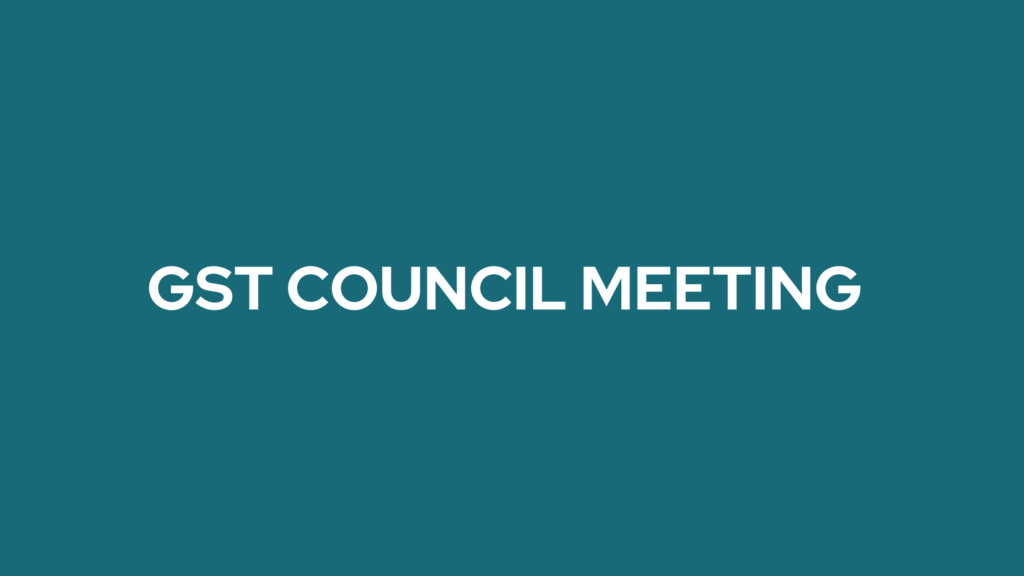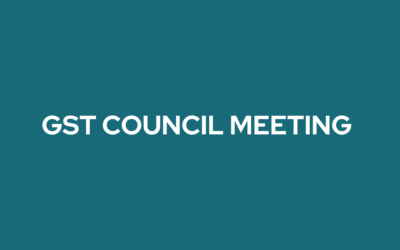4th GST Council Meeting – Highlights & Updates
The 4th meeting of the GST Council was held on 3-4 November 2016. when the Hon’ble Union Finance Minister, Shri Arun Jaitley chaired the meeting.
GST Tax Rates:
The Council adopted the following decisions in respect of bands of rates of tax in the GST regime and the compensation mechanism for five years The four slab rates were decided; which includes 5%, 12%, 18% and 28%.
- There shall be a category of goods which shall be exempt from GST and this would include items like food grains.
- There shall be a low band of tax rate of 5% and would generally cover goods which presently attract combined tax rate of Central Excise and VAT (including cascading on account of these two taxes) between 3% and less than 9%. Such goods are normally consumed by the vulnerable sections of the society or have high impact on inflation.
- There shall be a standard tax rate of 12% and would generally cover goods which presently attract combined tax rate of Central Excise and VAT (including cascading on account of these two taxes) between 9% and less than 15%.
- There shall be another standard tax rate of 18% and would generally cover goods which presently attract combined tax rate of Central Excise and VAT between 15% and less than 21 % (including cascading on account of these two taxes).
- There shall be a higher band of tax rate of 28% and would generally cover goods which presently attract combined tax rate of Central Excise and VAT equal to or more than 21 % (including cascading on account of these two taxes).
- Supply of services shall generally be taxed at the rate of 18%.
Compensation to the states by way of the Cess:
- To generate resources to compensate States for five years for any loss of revenue suffered by them on account of implementation of GST, cess shall be levied on goods such as luxury cars, aerated drinks, pan masala and tobacco products, over and above the rate of 28%. For the goods chargeable to the cess, the rate of cess shall be such so as to generally maintain the present incidence of taxation on them.
- A Compensation Fund shall be created in public account and cess revenue shall be credited to it.
- The Clean Environment Cess on coal, peat and lignite shall continue to be levied and its proceeds shall go to the Compensation Fund. If required, the name and purpose of this cess shall be changed.
- The National Calamity Contingent Duty (NCCD) shall continue to be levied and its proceeds shall continue to be allocated to the National Disaster Relief Fund (NDRF).
- The Cess shall be part of the Compensation Act and it shall have a sunset clause of five years.
- Any residual amount left in the Compensation Fund after the five year compensation period shall be shared in the ratio of 50% each for the Central Government and the State Governments. In the 50% share of the States, the amount shall be distributed to the individual States based on their share of all-India collection of SGST.
- There shall be a review every year by the Council to examine if, based on the need for compensation, cesses levied for compensation purpose could be subsumed into the GST tax net. Similarly, additional cesses can be imposed by the Council to meet the requirement of compensation.
However, The 4th GST Council meeting ended without reaching any resolution on the dual control over assesses. This issue has been pending since the second GST council meeting. Finance Minister Arun Jaitley had said that they will have an informal meeting of all finance ministers of the states on 20th November where they will try to talk and find out some political solution to this problem. He said that they will not take any decision in hurry and everything should be done systematically.
https://gstcouncil.gov.in/4th-gst-council-meeting

